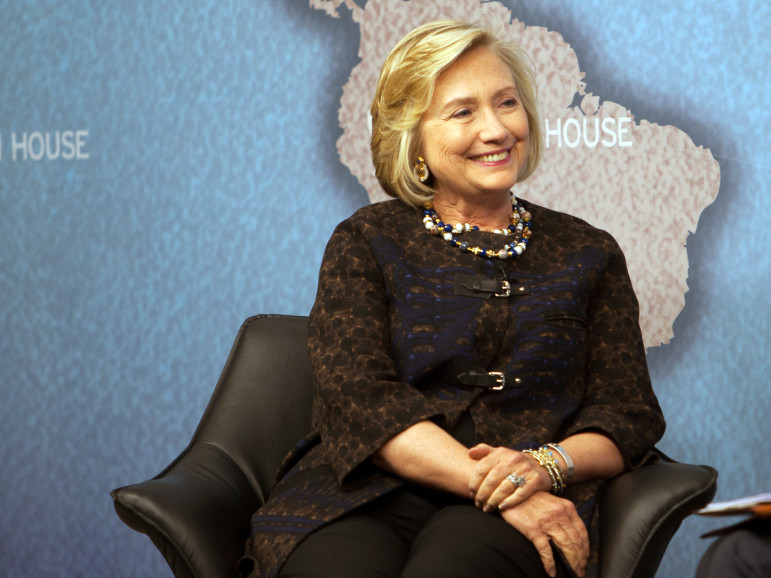
Chatham House
Hillary Clinton: First Lady, U.S. Senator, Secretary of State ... but unlike Chafee, O'Malley or Sanders, never a mayor.
For the first time in the 2016 political season—and, yes, more than two months before it actually is 2016—the declared Democratic candidates for president face off tonight in Las Vegas for a televised debate. (City Limits is hosting a debate-watching party at Bronx Beer Hall from 8-11 p.m.) There is no shortage of weighty topics to discuss: the Syrian war and refugee crisis, the deteriorating Israeli-Palestinian situation, the Taliban’s surge in Afghanistan … and that’s before we even turn past the map of western Asia.
Of the five candidates scheduled to appear, it’s interesting that three have served as mayors: former Rhode Island Gov. Lincoln Chafee was mayor of Warwick from 1993 to 1999, former Maryland Gov. Martin O’Malley was mayor of Baltimore from 1999 to 2007 and Sen. Bernie Sanders was mayor of Burlington from 1981 to 1989. Only O’Malley, however, can be said to have governed a big city—Baltimore is America’s 26th largest, with 623,000 people.
Urban policy, as a separate topic for discussion, rarely surfaces in presidential politics these days. To some degree that’s because many traditional urban issues have suburbanized; in other words, cities care about the same issues as everyone else. Yet there remain policy areas that affect cities more acutely. Here are some that the Democratic hopefuls should have to answer:
1) Gun Violence: Recent policymaking has focused on preventing certain people from buying guns, while permitting legal gun owners to have as many as they want. But most of the guns used in recent mass shootings were purchased legally, often by people who exhibited no outward signs of mental illness or other issues that would disqualify them from owning a weapon. Is there a way to reduce gun violence in America without curtailing the number or type of weapons anyone can buy?
2) Public Housing: More than a million people live in public housing—a bigger population than that of six U.S. states. For more than a decade, the federal government has shortchanged local housing authorities on both operations funds and capital support. Would your administration re-commit to fully supporting or even expanding public housing?
3) Poverty: The U.S. poverty rate stands at 14.8 percent, slightly lower than during the financial crisis but still higher than any time from 1994 to 2009. President Obama launched two programs, Promise Neighborhoods and Choice Neighborhoods, to identify ways to combat concentrated poverty with an array of services. What will be your administration’s approach to reducing poverty, and how should voters measure whether you’ve succeeded or not?
4) Disease: Last year’s Ebola epidemic raised concerns about America’s ability to defend against dangerous, communicable diseases while respecting civil liberties. Do you feel the health system is prepared for a serious outbreak, and if not, what further steps need to be taken?
5) Climate Change: Many of America’s largest cities sit on a coastline that could become increasingly vulnerable to severe weather. Even if greenhouse gas emissions were brought under control, some amount of sea-level rise is inevitable. What should the federal government do to protect these cities?
6) Race: Surveys indicate increasing polarization and pessimism on racial justice in America. If our first biracial president was unable to achieve real progress on race, how will you do so?








